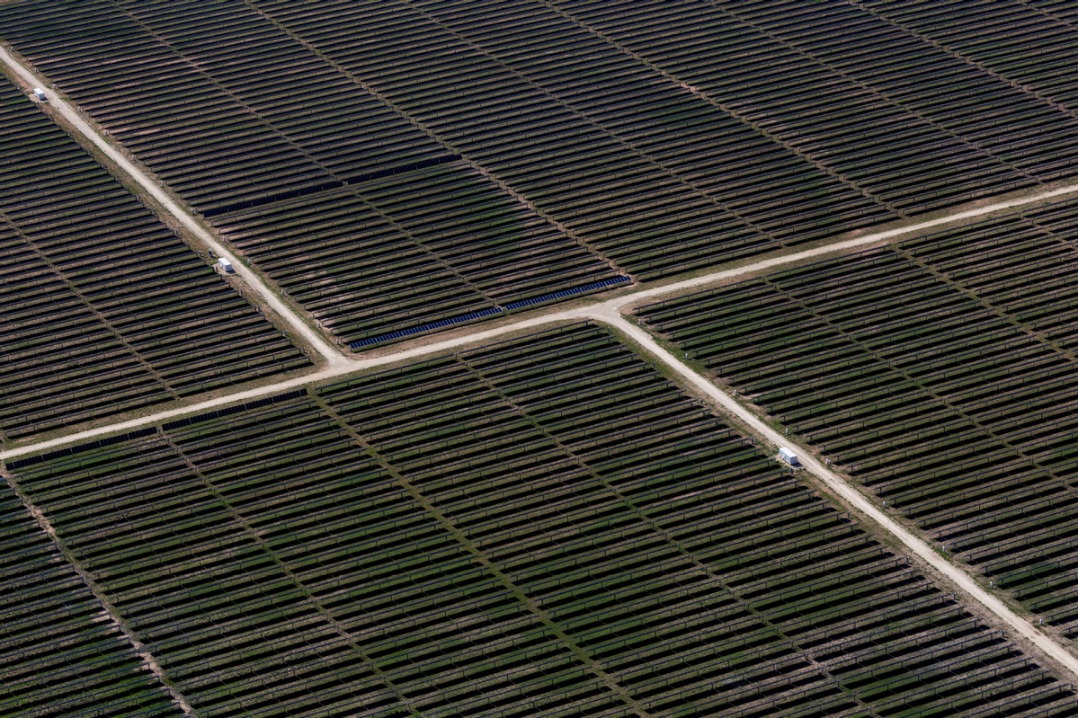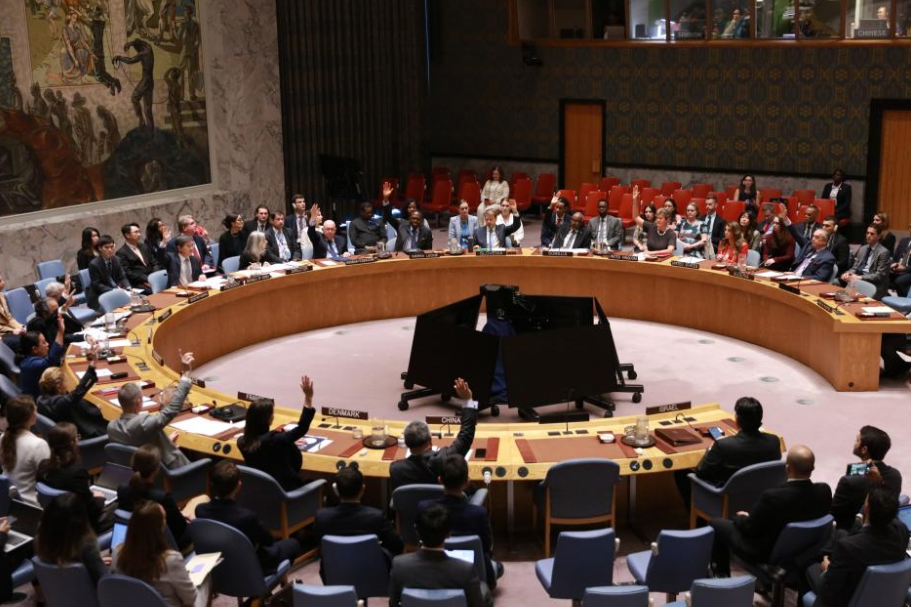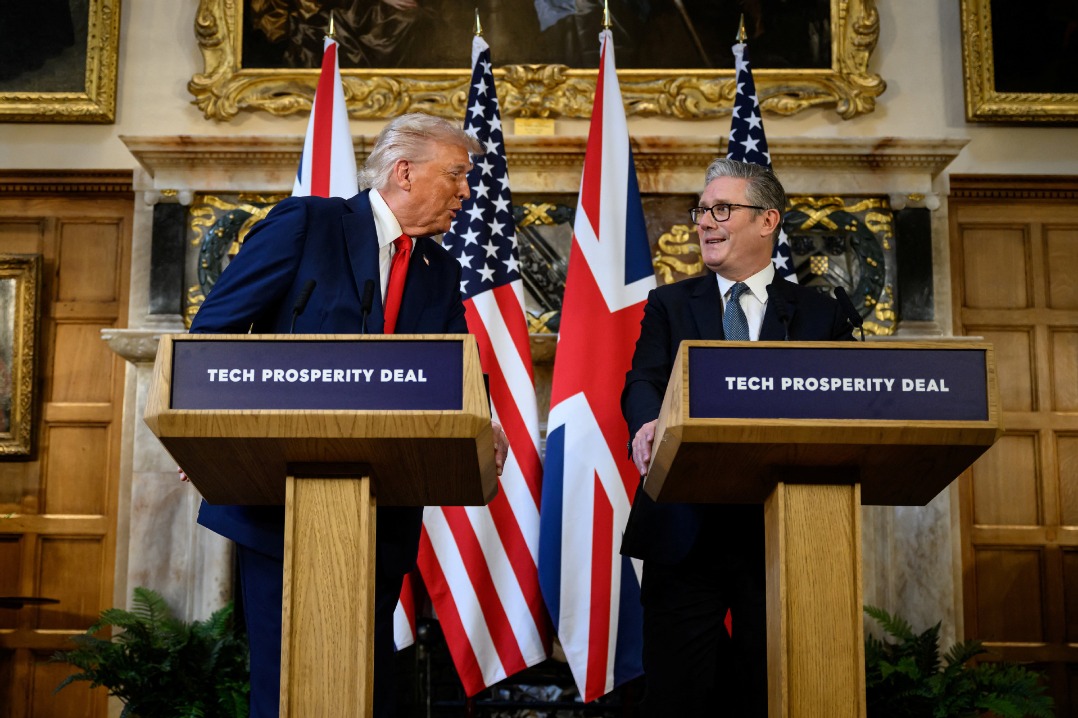China, Japan enjoy fruits of cooperation

50th anniversary of normalization of relations brings reflections on achievements and the path ahead
For some time, "hot economics, cold politics" has been a frequently used phrase to describe the relationship between China and Japan. But half a century ago a spirit of optimism and goodwill hung in the air as the two governments of the day reached out to each other.
Many are hoping that reflections on the 50th anniversary of the normalization of China-Japan relations will play a role in guiding the ties toward a smoother path.
"My grandfather feared that he could be assassinated by opposition forces in Japan if he flew to Beijing for negotiations at the height of the Cold War," Mitsuko Watanabe, granddaughter of Japan's then-foreign minister Masayoshi Ohira, said in an interview with China Daily ahead of the anniversary.
"But he also thought that he could not get a treaty of peace and friendship with China if he didn't take the risk," said Watanabe, adding that the normalization of diplomatic relations did not come easily and the two countries should cherish that friendship.
The same fear was also shared by Kakuei Tanaka, Japan's then-prime minister who inked his name on the historic China-Japan Joint Statement on Sept 29, 1972, together with China's then-premier Zhou Enlai.
Tanaka's daughter Makiko Tanaka, who served as foreign minister among key posts from 1993 to 2012, said her father took a huge gamble on normalizing relations with China because his cabinet had been formed just two months earlier. But he had acted to fulfill a long-held ambition.
Makiko Tanaka remembers that her father told her before his departure to Beijing that he would resign if the mission failed.
"Opposition was so fierce in Japan, some ruling party hawks came to my home to stop my father from leaving. But in his opinion, the relationship with China was a fundamental issue in Japanese politics, and it was impossible to talk about Japanese politics without mentioning China," said Makiko Tanaka, adding that China had not left her father's mind since he was first elected to Japan's parliament, known as the Diet, in 1947.
The gamble turned out to be a big win. A picture taken from a helicopter by the Mainichi Shimbun newspaper in November 1972 shows a queue of thousands of people snaking back from Tokyo's Ueno Zoo. They were there just to see giant pandas Kang Kang and Lan Lan, given as a token of friendship from China. The mood on the streets exemplified the uplifting feeling that had taken hold at the time.
A growing number of Japanese people began to view China positively and, according to data from Japan's Cabinet Office, that sentiment reached its highest point in 1980 when polling indicated 79 percent of the Japanese population had a positive image of China.
Significance highlighted
Commenting on the significance of the visit and the diplomatic statement, Chinese Ambassador to Japan Kong Xuanyou said: "The China-Japan Joint Statement put a complete end to the postwar confrontation and isolation between Beijing and Tokyo, ushering in a new historical chapter.
"As we commemorate the 50th anniversary of the normalization of Sino-Japanese diplomatic ties this year, it is a right occasion to honor the strategic vision and political courage of the older generation leaders, and also the firm conviction of the two peoples to pursue peace and development."
Relations between the two countries enjoyed a honeymoon period in the 1970s and 1980s, when Japan used its expertise gained from rapid economic growth, along with government loans, to help China develop its infrastructure and pursue industrial projects.
The Baoshan steel plant in Shanghai and similar projects became symbols of this cooperation, marked by win-win outcomes in the way they promoted the flow of talent, skills and technology from Japan while laying the foundation for Japan's huge presence in China's industrial and consumer markets.
The two countries managed to maintain somewhat good political relations in the 1990s. But they began to sour in the 2000s when Japan's then-prime minister Junichiro Koizumi repeatedly visited the notorious Yasukuni Shrine, where 14 Class-A war criminals are honored in Japan.
The shrine is regarded as a symbol of Japan's past atrocities and militarism worldwide and its Yushukan, a war museum inside the shrine, espouses Japan's right-wing narrative of its militaristic past.
The ties then entered a downward spiral a decade ago following Japan's unilateral change of its policy and the status quo concerning China's Diaoyu Islands by illegally "nationalizing" them in 2012.
The trade conflict initiated against China by US president Donald Trump in 2018 saw a further erosion of the China-Japan relationship. In line with the US' actions, Japan heavily politicized economic activities between it and China, including effectively banning communications equipment from China's Huawei Technologies and ZTE imposed that year.
The administration of US President Joe Biden is also focused on using economic security as a political weapon and is urging its allies to join in with such efforts against China. Tokyo, which has been caught up in the rivalry, has appeared more enthusiastic than ever to align itself with the US in terms of regional geopolitical and economic confrontation, at the expense of its economic ties with China.
"Japanese Prime Minister Fumio Kishida's government has been aggressively promoting the so-called economic security concept, with the Japanese parliament in May passing an economic security bill aimed at guarding technology and reinforcing critical supply chains," said Wang Qi, a researcher of East Asian Studies at the Chinese Academy of Social Sciences in Beijing. Such actions have led many to believe that the Japanese government is using economic security as an excuse to shut out China, Wang said.
However, despite efforts by some Japanese policymakers to bring about what amounts to an economic decoupling with China, a gap is apparent between the rhetoric of these policymakers and how companies are going about their business in China. In spite of the noise in some quarters, economic ties between the neighbors remain robust — arguably stronger than ever.
Trading partners
China is Japan's biggest trading partner, with the total value of trade having grown by 113 times since 1972 to $371.4 billion last year.
The economic interdependence between the two countries showed its resilience during the test posed by COVID-19, with China's share of Japan's overall trade recording all-time highs in both total trade and imports in 2020. It was also in 2020 that China surpassed the US as the No 1 importer of Japanese goods. In the first half of 2022, Japan's imports from China increased by 2.4 percent, marking a record high for a half-year increase.
Under the decoupling mindset, the government in Tokyo offered to pay Japanese companies to shift production back home or into Southeast Asia. But a survey conducted by the Japan External Trade Organization last year, covering 679 Japanese firms' Chinese branches and companies, showed that only 3.8 percent of them were planning to shrink their Chinese operations or withdraw from the country in the next one or two years — the lowest figure since 2010.
Another survey, conducted by the Sankei Shimbun newspaper in July, found that out of 118 Japanese firms, more than half answered that business with China should remain as it is or continue to develop. In the same survey, not even one company answered that a significant distance between China and Japan is needed.
"Both Japan and China know well that cooperation benefits both while confrontation serves neither and the development and revitalization of Asia bear closely on the future of China and Japan," said Wang from the CASS. But she also points out that some Japanese lawmakers give priority to politics and ideology. With that approach, it remains to be seen whether the economic aspects of the bilateral relationship can transcend the current political frictions or will be damaged by "shortsighted political agendas".
Commenting on Japan's growing tendency to side with the US to contain China, Makiko Tanaka, whose stint as foreign minister came in 2001 and 2002 in Koizumi's government, said: "Japan's alliance with the United States is a linchpin of our diplomacy, but we should not isolate China. We are just banding together and being confrontational toward China."
She criticized the visit of US House of Representatives Speaker Nancy Pelosi to Taipei in August as an act that escalated tensions.
Yasuo Fukuda, a former Japanese prime minister, said the friction between Japan and China largely stems from the US-China trade disputes, and he takes issue with the suggestion in some quarters that "global trade works better by excluding China".
In an opinion article for China Daily, former Japanese prime minister Yukio Hatoyama said that 50 years ago, great politicians of China and Japan understood that the peace between, and the prosperity of, the two countries and East Asia would not be possible unless Japan and China, as nearest neighbors separated by only a narrow strip of water, established a stable relationship.
"Today, too many people seem to have forgotten the importance of a stable Japan-China relationship," wrote Hatoyama, warning that "the Japanese government should make it clear, both in words and action, that it will adhere to the one-China principle.
"It should also send a message to the United States and Taiwan, voicing its strongest opposition to the road toward possible war. If the one-China principle becomes hollow, it could accelerate an arms race and trigger a conflict in East Asia. That is what no one wants to see."
Five-point suggestion
In a recent speech at a symposium commemorating the 50th anniversary, Chinese State Councilor and Foreign Minister Wang Yi made a five-point suggestion to serve as a guide as the China-Japan relationship embarks on the journey for the next 50 years.
The suggestions include honoring commitments and safeguarding political foundation; bearing in mind the overall interests; deepening cooperation, and striving for win-win results; fostering positive and friendly mutual perception and acting in line with the trends of the times, and practicing true multilateralism.
"In the face of the turbulence and volatility in the world today, China-Japan relations have to press forward, or they will slide backward," Wang Yi said. "The two sides need to renew their original aspiration when establishing the diplomatic relations, take lessons from history, and work to promote sound and steady development of bilateral relations along the right track.
"They also need to contemplate on ways to build a China-Japan relationship that meets the needs of the new era and adds new substance and impetus to bilateral relations."

































